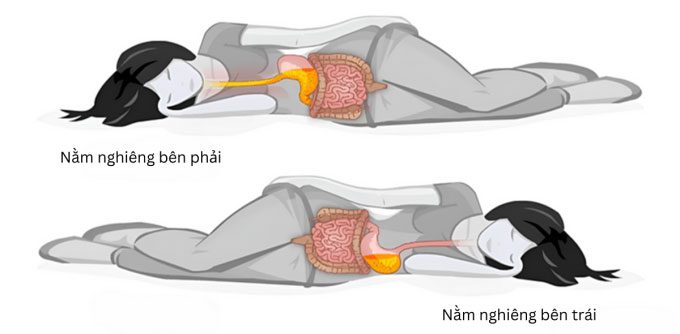According to the Canadian Gastrointestinal Research Association, sleeping on your left side can significantly reduce acid reflux.
Digestive issues such as indigestion, diarrhea, constipation, bloating, heartburn, and acid reflux tend to occur more frequently during the holiday season. Erin Judge, a gut health expert and founder of Gutivate, explains that the gut develops according to human habits, especially during sleep, exercise, and breakfast.
“During the holiday season, many people change their routines due to travel, busy schedules, and shorter days. This can confuse the gut, leading to digestive symptoms and changes in bowel movements,” she explains.
Bloating in general can stem from gastroesophageal reflux disease, gastroesophageal reflux disease (GERD), which occurs when the lower esophageal sphincter does not function effectively, allowing stomach contents to flow back into the esophagus, causing a burning sensation. Prolonged reflux can lead to esophagitis, strictures, and in rare cases, dysplasia or cancer.
Symptoms include heartburn after eating, which worsens at night or when lying down. According to the Canadian Gastrointestinal Research Association, gravity helps prevent stomach contents from rising into the esophagus. However, reflux worsens significantly when a patient sleeps or lies down. Without gravity, stomach contents can overflow through the malfunctioning lower esophageal sphincter, flowing back into the esophagus.

Difference between the two sleeping positions. (Photo: Gastrointestinal Society).
To remedy this situation, Ms. Judge recommends that everyone sleep on their left side. A 2022 study from Harvard University showed that individuals with chronic heartburn who sleep on their left side expel acid more quickly. This is because a large portion of the stomach’s volume is located on the left side of the upper abdomen. Thus, this position keeps the stomach below the esophagus, making it difficult for acid to rise.
If you are uncomfortable with the left-side sleeping position, experts recommend elevating your head and torso 15 to 20 cm above the bed. Note that the body should be kept straight in the angled position, rather than just raising the head higher than the rest of the body. Simply propping up pillows can lead to back or neck pain, increasing pressure on the stomach and exacerbating unwanted symptoms, causing sleepless nights.
If changing positions is ineffective, specialists recommend gently massaging around the navel in a clockwise direction.




















































